Obituary: Achmad Cassiem, anti-apartheid hero, advocate of Islamic unity
By Ahmed Suliman
Imam Achmad Cassiem, a prominent anti-apartheid figure in South Africa and a Muslim community leader, died in Cape Town on July 14 at the age of 77 after a brief spell of illness.
He was an anti-racism campaigner, former Robben Island prisoner, Pan Africanist Congress member, founding member of the Qibla Movement, as well as a pro-Palestine and anti-Zionist campaigner.
Achmad Cassiem was born on December 12, 1945, and grew up in a Muslim environment in District Six, which was known at the time as a multiethnic neighborhood in Cape Town, South Africa.
As a boy growing up in the 1950s, he witnessed the establishment of the apartheid regime and its discriminatory laws and legislations and showed an early interest in mainstream politics in the 1960s, like many other prominent anti-apartheid activists of his generation.
His interest was fueled by oppressive measures in his native place and by the Pan Africanist Congress (PAC) campaign against racist laws. So, as a 15-year-old, he joined the armed struggle against the apartheid regime.
While he was a student at the Trafalgar High School, Cassiem was arrested because of his connection with teacher Sadiq Isaacs, falsely accused and charged with planning sabotages.
He was first detained under the 90 Day detention law, brutally interrogated and denied access to a lawyer or his family, and then sentenced to five years in prison.
Cassiem thus became one of the youngest inmates at the notorious Robben Island prison that also housed three future South African presidents, Nelson Mandela, Kgalema Motlanth and Jacob Zuma, besides numerous other prominent revolutionaries and activists of the time.
While serving his prison sentence, Cassiem attained his matric certificate and followed it up with a bachelor's degree in philosophy by correspondence.
At the same time, he became involved as an activist for the rights of political prisoners, trying to forward letters about the torturous conditions of inmates in Robben Island to international humanitarian organizations, which were intercepted by the apartheid regime.
Upon his release, Cassiem was issued with a banning order, which forbade him from communicating with more than one person at a time, being politically active, or entering any educational institution.
He was not intimidated by these repressive measures and was soon arrested for breaking the conditions of his banning order by attending Friday congregational prayers.
He worked various temporary jobs, as a teacher and architectural draftsman, and at the same time organized Islamic student groups.
Founder of Qibla Movement
The victory of the Islamic Revolution in Iran in 1979 had a profound impact on Cassiem, inspiring him to establish the Qibla Movement (Direction), a resistance group that sought to fight injustice.
Impressed by Islam as the main revolutionary driver from the 7th to the 20th century, he argued that many Muslims had lost a correct understanding of Islam and its revolutionary heritage in Azania, a historical region in East Africa.
Cassiem was of the opinion that Muslims should acquire the requisite skills for resistance since the Muslim community has previously shown itself to be the most fearless and steadfast in its fight against oppression and injustice worldwide.
Although South Africa was not a Muslim-majority country, he maintained that South Africans should present Islam as the main liberating force to the oppressed masses, in the hope that enlightened masses would then follow their direction and rise up against the oppressors.
In 1980, Cassiem secretly mobilized students and teachers to oppose apartheid education, for which he was again imprisoned for eight months without any charge, along with 65 others.
During his time in prison, he was punished for violating a ban to communicate with other inmates, so the prison warders confiscated their documentation, newspapers, books and the Qur'an. He was later freed without any charges pressed against him.
Cassiem's activities were closely monitored after that, and South African apartheid used tactics of intimidation, smearing and accusation against him and his comrades.
On May 2, 1981, he was arrested again because one of ten anti-apartheid fighters, trained in Libya and detained in Athens, was found in possession of his phone number.
His trial began in 1987 and ended in October 1988, with Cassiem being sentenced to six years of imprisonment. He was released in 1991, following the lifting of a ban on liberation organizations, but remained under strict restrictions until 1993.
Internationalization of struggle
Although in 1994 he welcomed the newly acquired rights, won by the official collapse of the apartheid regime, Cassiem was critical of the negotiated political settlement.
In his view, superficial changes were not enough because the system at its core remained corrupt and injustice prevailed, arguing that the poor will become poorer and the oppressed will remain oppressed.
To Cassiem it was an entrenchment of the global and local value systems of Zionist racism, veiled apartheid, exploitative selfish capitalism and dehumanizing imperialism in the name of Christianity.
He saw it as a compromise between two elites, black and white, at the expense of the liberation struggle and the oppressed masses.
Therefore, he called on Muslims to boycott the country’s first elections, arguing that the compromises made by Nelson Mandela’s ANC violated the goals of the anti-apartheid struggle and rushed toward peace before securing justice for the victims of apartheid.
In the mid-1990s, many prominent South African activists used their fame and authority to position themselves high in national or local politics, gaining numerous advantages in a new environment.
Cassiem was not among them. He refused to accept such status quo and become passive, continuing fearlessly with his struggle which, as before, focused on lectures and leading the oppressed.
In March 1994, one month before the first democratic elections in South Africa, Cassiem was instrumental in setting up the Islamic Unity Convention (IUC), an umbrella organization of 300 Muslim organizations across the country.
Establishment of Islamic Unity Convention
The IUC established and brought several prominent organizations under its umbrella, including aid organization Mustadafin, the Iqraa Foundation, the publication Al-Miftah, and broadcaster Radio 786.
Under Cassiem’s leadership and his resistance connections, the IUC hosted a conference that was attended by renowned thinkers, including Russian philosopher Haider Jamal, and French philosopher Roger Garaudy.
Furthermore, the IUC was amongst the first Islamic organizations to advocate for women to take up leadership positions, which was rare at that time.
Cassiem was also responsible for keeping alive the memory of Imam Abdullah Haron, an anti-apartheid activist who was beaten to death by apartheid agents in 1969.
In 2005, he led the Pan Africanist Congress (PAC) in the Western Cape and was also an advisor to the Islamic Human Rights Commission (IHRC) in London.
He and Qibla members were also involved in the formation of other bodies, including Muslims Against Global Oppression (MAGO), which held marches and protests against US policies in West Asia.
Cassiem raised awareness about injustices in Palestine, Lebanon, Kashmir, Chechnya, Bosnia and other places, asking South African activists to use their experiences to help the oppressed worldwide.
He was a strong proponent for the liberation of Palestine, often addressing the Al Quds rallies in South Africa and elsewhere and urging South Africa to sever its ties with the Zionist apartheid regime.
Cassiem published several books, including "Zionist Israel: Hypocrisy Has No Limits" about Palestine, "The Begging Bowl: Hunger, Starvation, Malnutrition & Muslims" about Muslim sufferings, and "The Oldest Profession" about education.
Tributes to the anti-apartheid hero
South African President Cyril Ramaphosa, in a statement on Saturday, paid glowing tribute to Cassiem and extended his condolences to the late activist’s family, friends, comrades and associates globally.
"Imam Cassiem lived a life of courage, principle and faith in mobilizing communities on the Cape Flats and around the country against apartheid,” Ramaphosa said.
"Imprisonment, confinement to his home and repeated harassment and detention by the apartheid security machine failed to extinguish the flame of resistance and revolution that burned in his being and which he ignited in everyone he inspired as an activist.”
Sheikh Irafaan Abrahams, president of the South African Muslim Judicial Council, said he will be “remembered as a leader who was always at the forefront of the struggle against apartheid and oppression to the extent where he was incarcerated on Robben Island.”
"May Allah reward him for the sacrifices and efforts he made to ensure that the rights of people are protected and that justice prevails. May his legacy of striving against injustice and oppression prevail, Ameen," Abrahams said in a statement.
Nazier Paulsen, an MP and a student of the late Imam, said he was “one of those people who informed the consciousness of the youth back in the 80s”, adding that South Africans “have lost an icon in our community, a man who stood by his principles even if he was going to stand alone."
"Imam Cassiem was a remarkable revolutionary leader in our community who opposed injustice. He was a fervent supporter of the Palestinian people and we will continue to support the Palestinian people; we will continue to fight for the dismantling of the apartheid Israeli state and the return of Palestinian lands, as Imam Cassiem did all his life," read the statement.
South African judge Siraj Desai said he had known Cassiem for half a century.
“He was deeply committed to a new social order and was not comfortable with events in this country with the poor becoming poorer. And with Qibla and all his organizations he exposed the rot that was sitting in society… He was an outstanding pillar of this community,” he said.
Massoud Shadjareh, chairman of the Islamic Human Rights Commission, also paid tribute to him.
“It will be difficult to summarize all the achievements of Imam Achmad Cassiem, his efforts to establish and lead the Qibla movement as an Islamic anti-apartheid armed resistance group that defeated apartheid, is one of the testimonies of his vision; and his dedication and his methodology of resisting oppression and supporting the oppressed by being a committed Muslim and Imam,” he noted.
"We are inspired and grateful to him as a teacher, as an Imam and as a guide who showed us that Islam is the pragmatic answer and solution against all oppression. Today, I cannot help but hear over and over his famous saying: Every day is a good day to learn and every day is a good day to die."
Ahmed Suliman is a South African activist and community organizer.
VIDEO | 44th Fajr Theater Festival underway in Tehran
VIDEO | Press TV's news headlines
VIDEO | Oil workers' march in support of reform of Venezuela's main oil law
VIDEO | Malaysians hold rally in front of Iranian embassy to condemn US, Israel threats
Israel to partially reopen Rafah border crossing after long closure
FM says Iran open to talks ensuring its legitimate rights and based on mutual respect
Rights groups in Australia call on authorities to arrest Israeli president
FIFA must strip US of 2026 World Cup hosting rights over Trump’s hawkish policies: Analyst


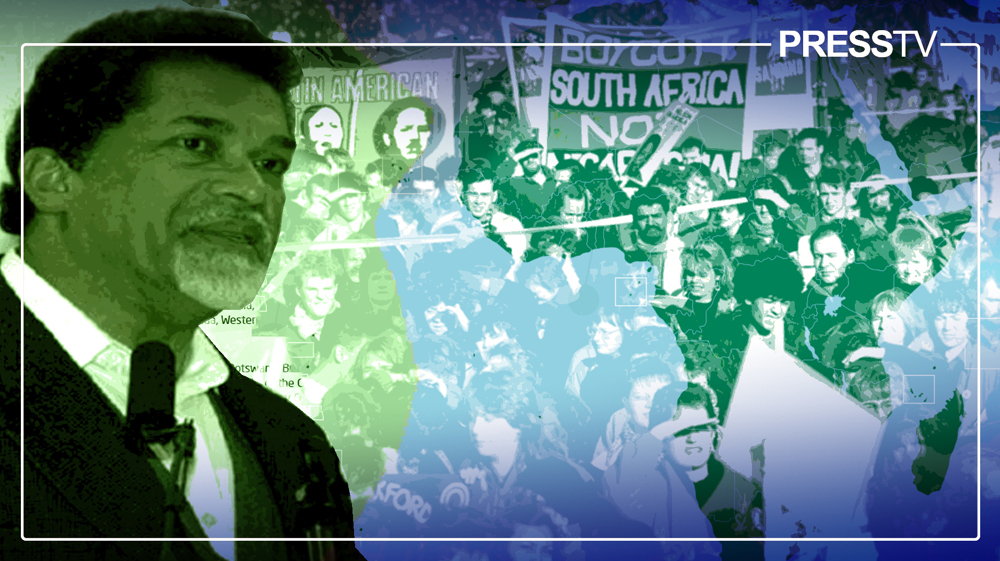
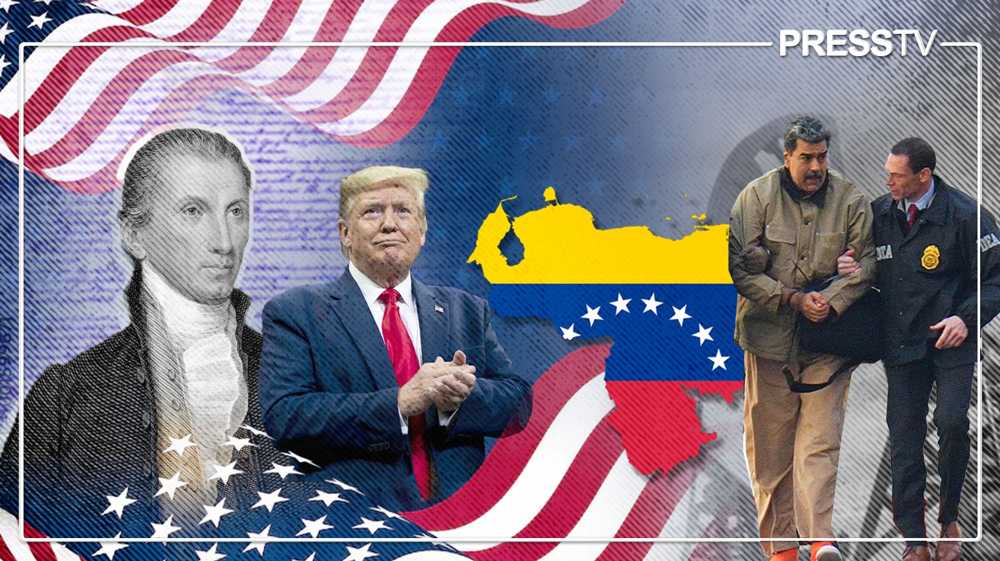
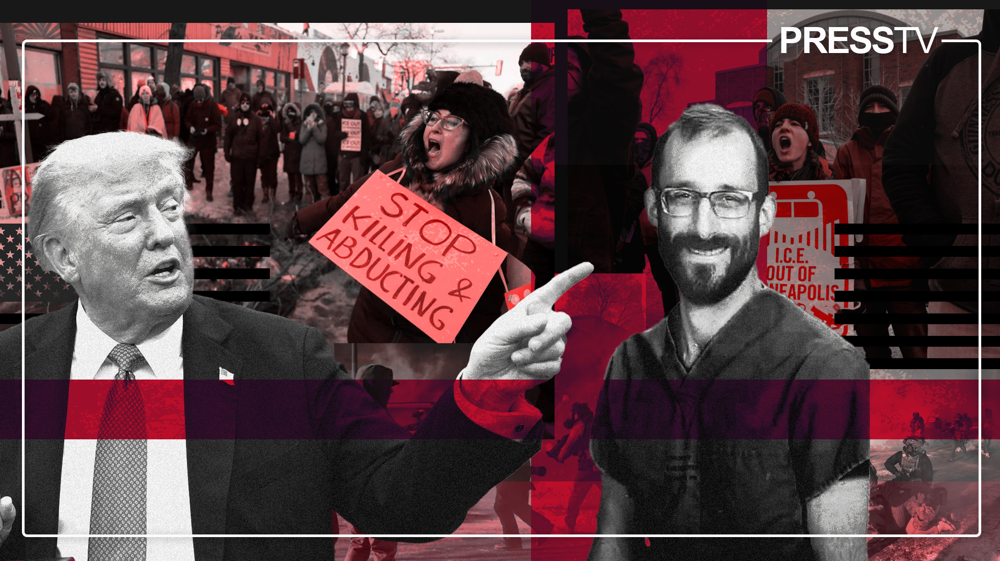
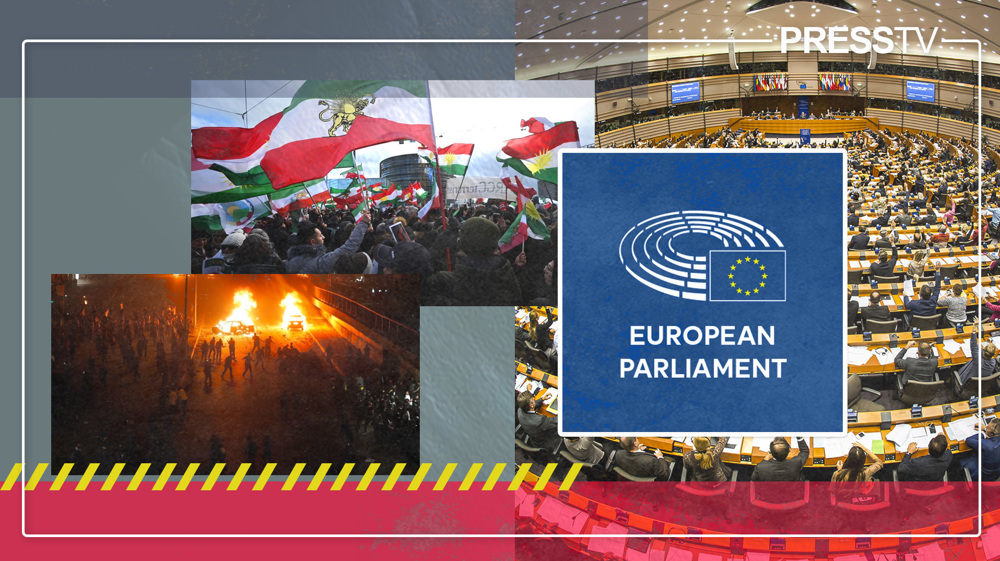



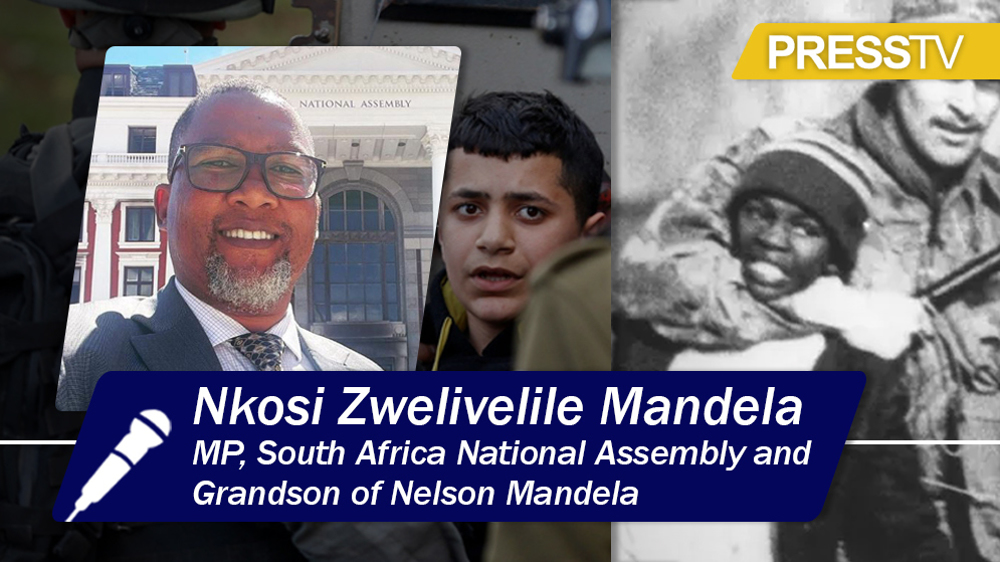
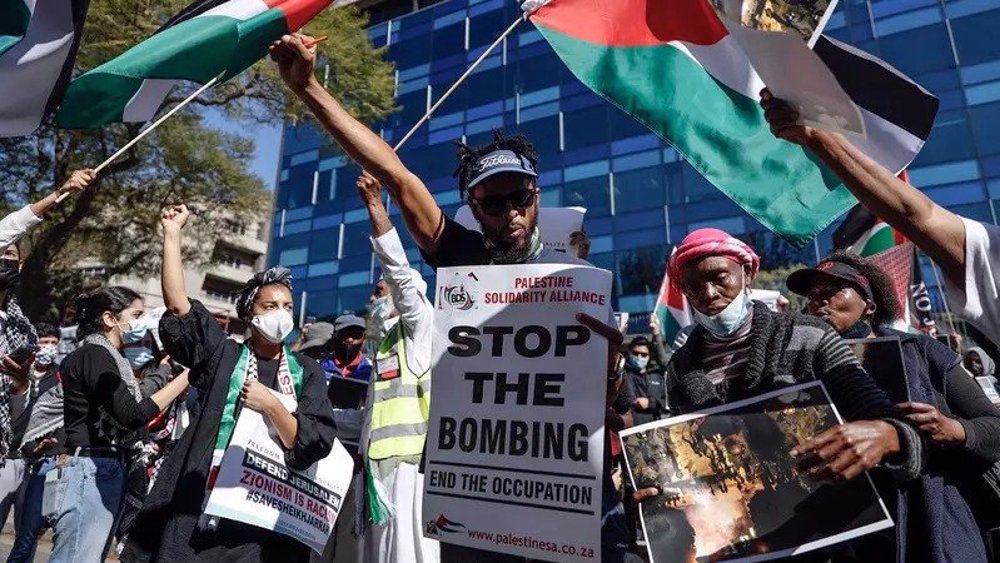
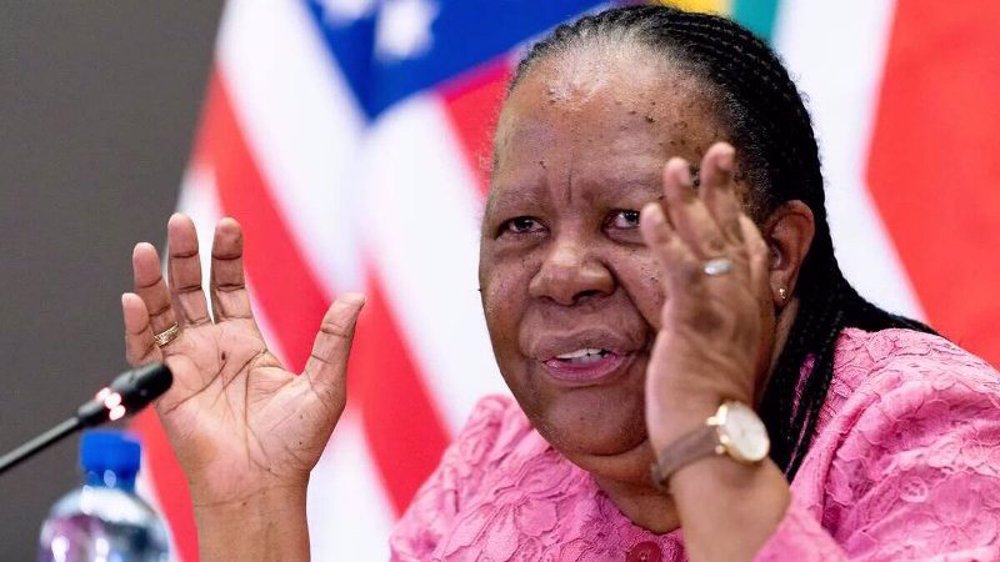
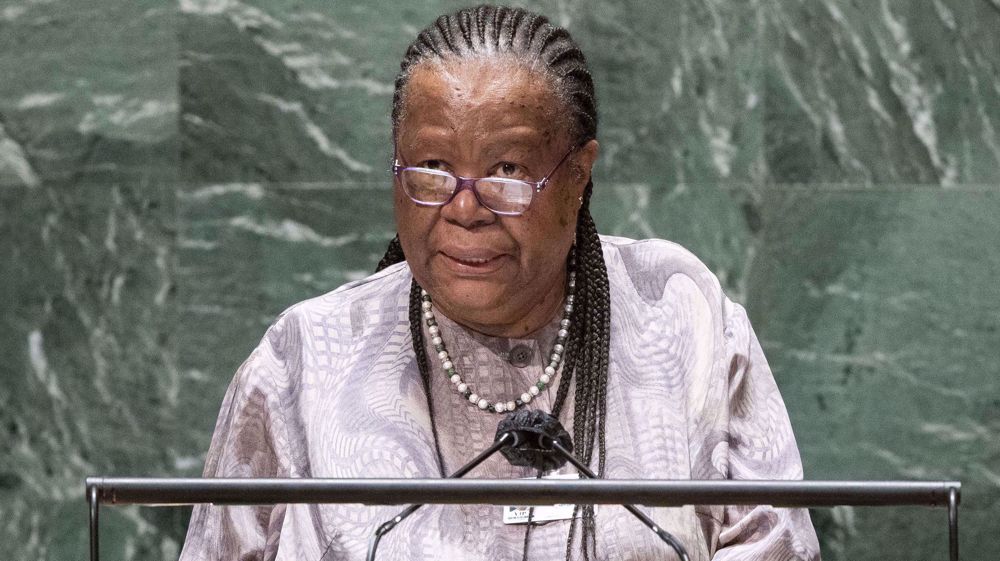
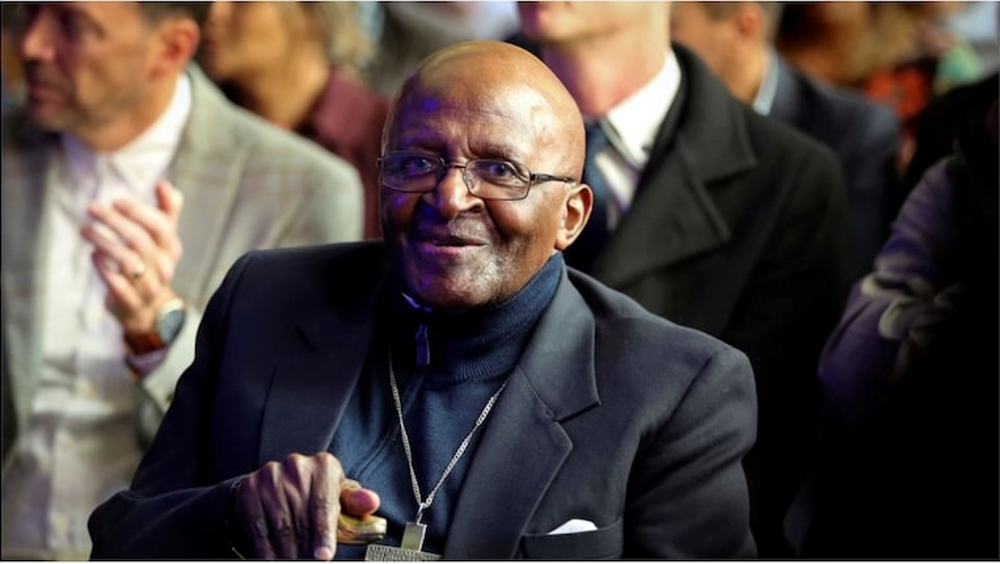

 This makes it easy to access the Press TV website
This makes it easy to access the Press TV website